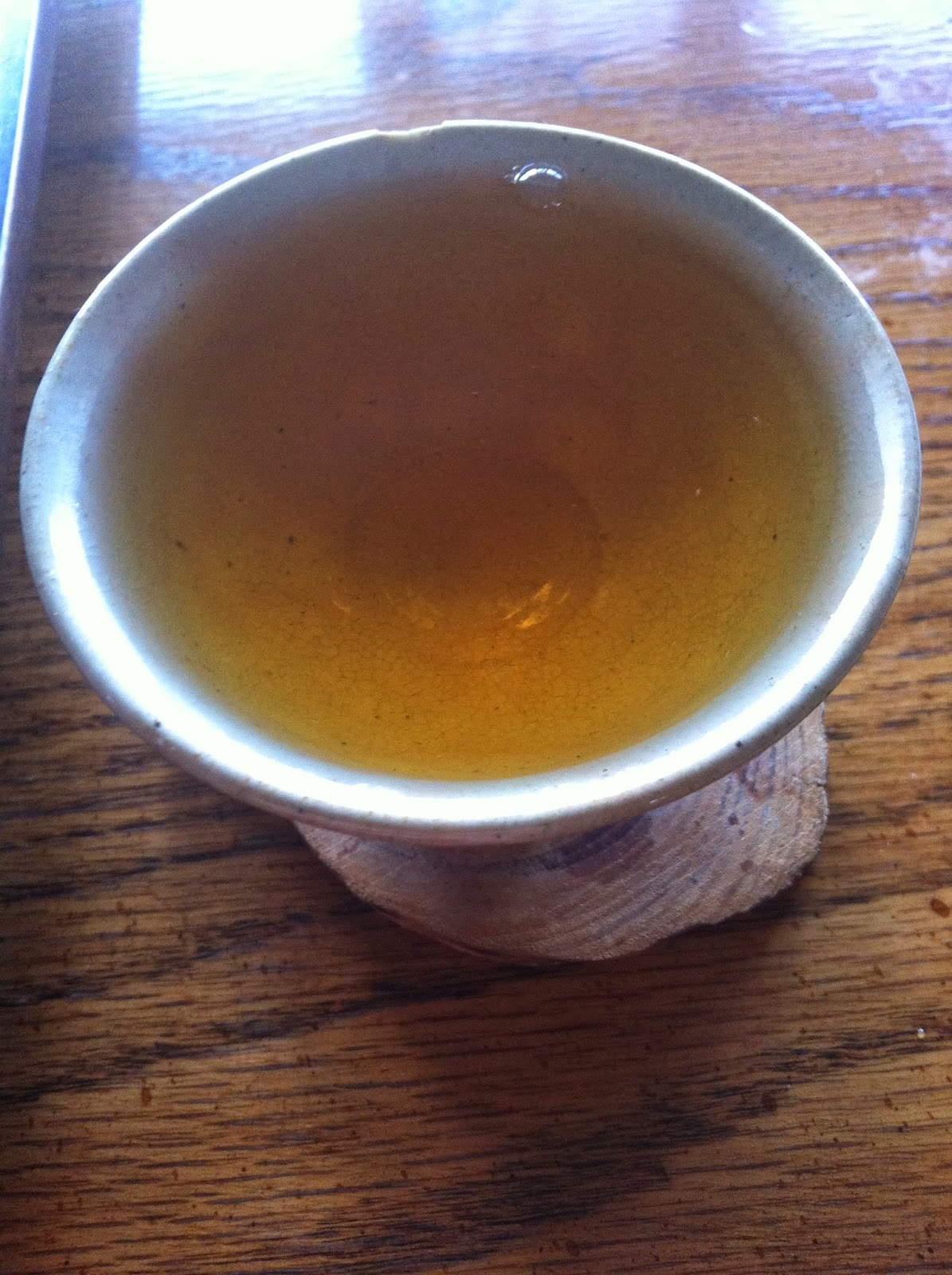This tea is from a special order that took place a few months back. It was orchestrated by Arthur Park of Morning Crane Tea blog. The tea is from a rather famous tea producer, Yi Ho Yeong, who was made famous in the west by being featured in Hong Kyeong Hee and Brother Anthony’s book The Korean Way of Tea. The tea is all semi wild and produced in the most traditional way all by hand and with charcoal heat. To get more background on Yi Ho Yong and the traditional way she produces her teas see these two great posts here and here.
Dry leaves are larger, jungjak grade leaves. The emit an odor of deeper black currents and bold fermented hong cha like odors there is also an distinct malty sweetness in there as well it mingles with the deep current/ raison notes. These leaves are prepared in the Korean tea ceremony and enjoy as following…
The first infusion is full of distinct sweet honey notes which coat the mouth with other subtle tastes of deep plum and spice. The mouthfeel is mainly felt softly in the throat and slightly slippery in the mouth. It is a very full but soft sensation. There is a slight coolness found in the deep throat with this tea as the throat opens nicely and salivates.
The second infusion is more distinct now. The sweet honey notes are more prominent and now share room with deep current notes and even deeper hong cha/ forest tastes. The mouthfeel is now much more full especially in the throat where a full cool menthol like taste swells up nicely. The throat feel is distinct and quite noticeable. The qi of this tea is very harmonious and immediately lightens the mind. The qi travels to the head and makes the thoughts clear and the senses enhanced.
The third infusion levels off quite a bit with the taste elements melding into one. The most distinct being a deep sweet honey Hong cha taste. The mouth and throat feel remain present.
The fourth sees the tastes become more subdue and monotone. The taste becomes simplified here with some simple woody-red tea notes with a slight honey sweetness that reaches long into the aftertaste. The qi imparts waves of relaxation in this simply genuine balhyocha.
The fifth is pushed harder with just off boiling water and longer steeping time. It results in a slightly woody-apricot taste with a soft sweet honey-apricot finish. Overall the profile continues to be somewhat deep but there is always a measure of sweetness to balance these tastes out in the mouth.
This tea is pushed a few more infusions and enjoyed in this way.
Peace








Hi Matt,
ReplyDeleteGreat review of a really fine balhyocha. Thanks for posting it and linking to my posts on her. I’ll be offering Yi Ho Yeong’s fresh new 2014 teas also at great prices in a June group buy. I especially like her green teas. Roasting over the wood fire gives her teas a whole other dimension and her method is very Korean. Incidentally, I just linked from my Facebook page to this post.